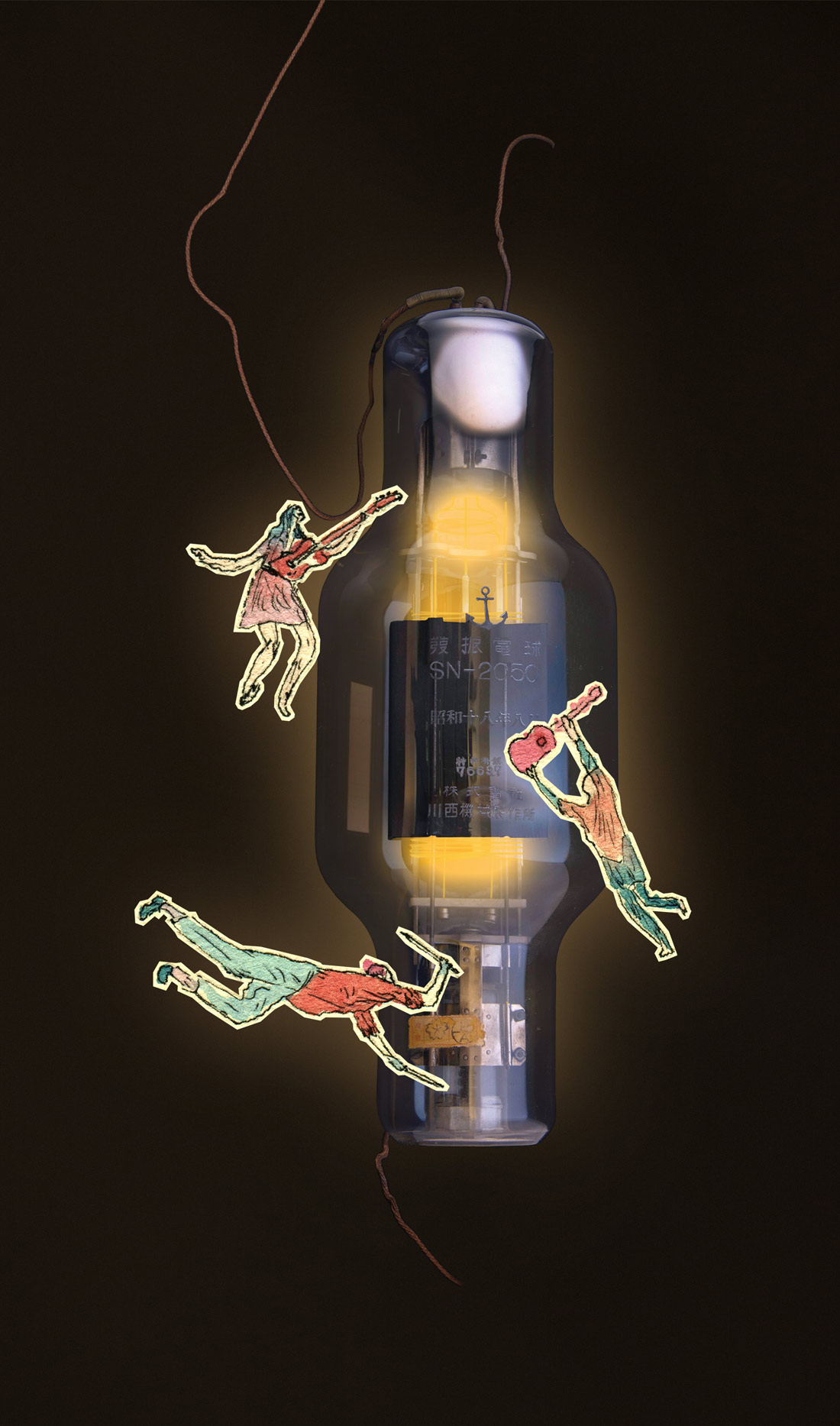"It's been over 20 years since the original CDs were issued. Since then the technology has improved, and there are all these new digital formats out there, so it made sense to revisit the studio albums," Jimmy Page told me when he visited New York to promote the newly remastered CD, LP, and digital versions of Led Zeppelin's first three groundbreaking albums. "But that's not unique. Everybody's doing that. So I wanted to make these new versions into something quite sexy."
In fact, the recent history of Led Zeppelin's catalog is a pretty tangled affair, so simply hearing that John Davis, of Metropolis Studios in London, has tackled not just the first three Zeppelin albums, but the entire catalog, is welcome news to any fan of the band. Audiophiles can debate the original 1980's CD versions, created by Barry Diament from vinyl master tapes, versus the 1990's versions, approved by Page and mastered by George Marino (not to mention the abysmal, brickwalled late-00s Mothership versions). However, these new CD masters, and spectacular heavyweight LP reissues, will certainly be the gold standard for a long time to come.
"I've done really, really high-resolution files for whatever system comes next, but I'm not even going to tell you the details of that," Page hinted, with a twinkle in his eye. "We're prepared for anything that's to come, which is even higher resolution."
Project consultant Robin Hurley confirmed to me, however, that 96 kHz/24-bit files will be accessible, via download cards, in each of the deluxe edition box sets of Led Zeppelin and also via HDTracks.com, over the next 18 months.
Even better, that "something quite sexy" that Page was referring to are the companion discs of previously unheard tracks, as well as works-in-progress versions of what amount to alternate versions of each album (with the exception of Led Zeppelin I, for which there were no outtakes to speak of. This forced Page to use a live show from October 1969, at the Olympia Theater in Paris. He told me he first heard it in a bootleg shop in Japan).
"I wanted to make sure that what's on the bootlegs that are out there, as best as possible, wasn't going to appear on our stuff," Page told me proudly of the project. "I didn't want it to be anything you recognized. I wanted to get it right. Here's the thing: I've purposely laced it, where it gives you the insight of what was going on in making these albums. These aren't subtle differences, because if you're going to have a companion to the original track, it's got to be sufficiently interesting. And, also, the album's got to hold up on its own."
The companion discs are indeed fantastic; though fans of Zeppelin bootlegs, like Studio Magik, will surely clamor for more after hearing the pristine sounding, albeit brief, single bonus discs included with each deluxe set. They are revelatory though, and also keep with Page's idea to give a portal into the making of the album, without being overly redundant.
As for the sound, the mastering is top-notch. There's great definition and roundness to the bass, as well as more clarity in the top end. Cymbals sound clear and far less edgy than the '90s Marino versions. In particular, the acoustic guitar on "Thank You" sounds nicely rendered, with more definition and space around it. Ambience and reverb seem to be more natural throughout, a result of the new transfer with the better, current analog to digital converters.
Finally, while the "Super Deluxe Edition Box Sets" are nice, and include books strewn with Zeppelin artifacts, like Robert Plant's handwritten lyrics, the real gems here are the new LP versions. At about a third the cost of the deluxe boxes (in which the LPs are also included, along with the CD versions), they may be the way to go for all but the most die-hard fan.




_disp_horizontal_bw.jpg)